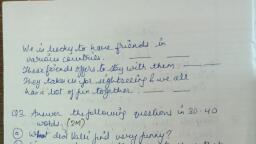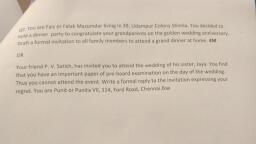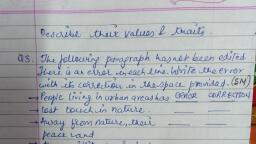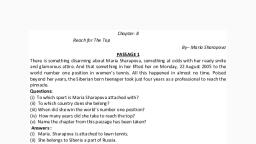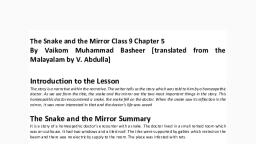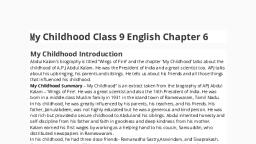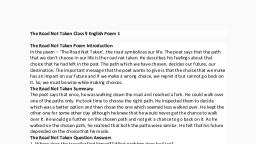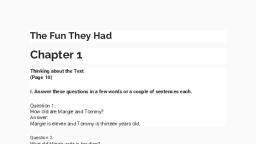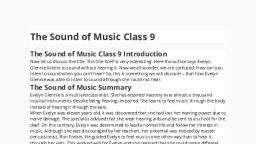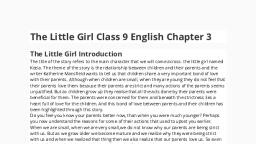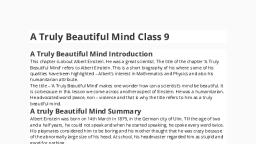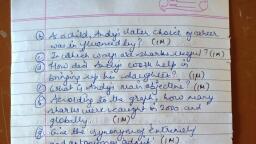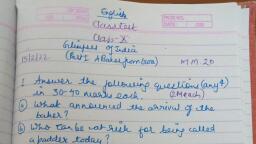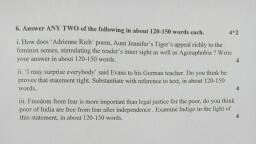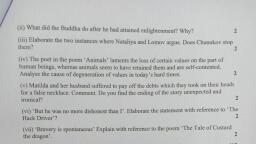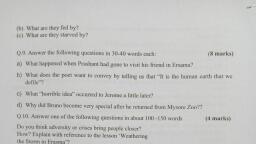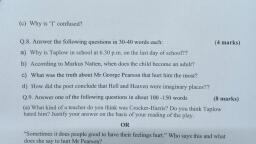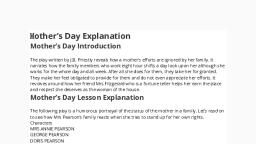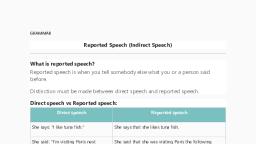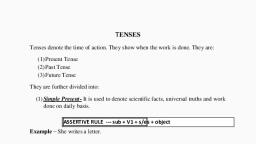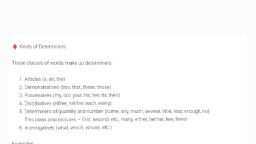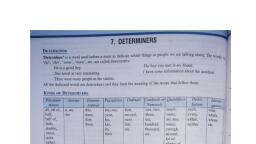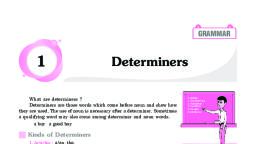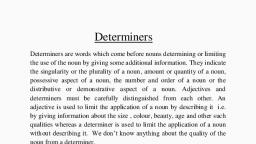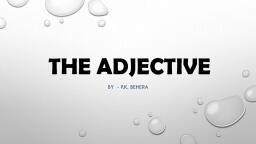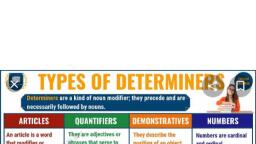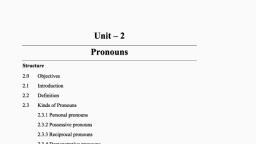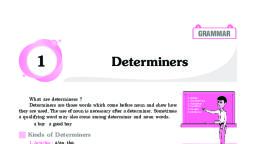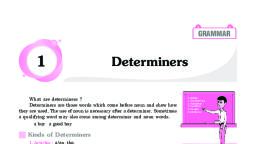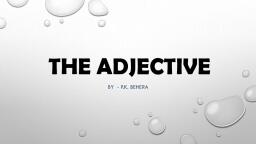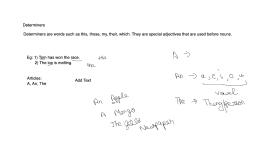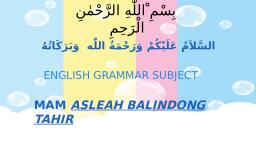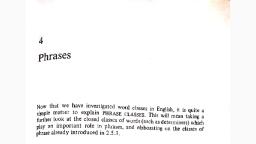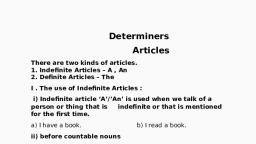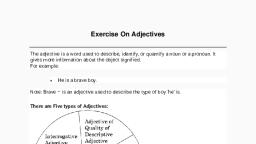Page 1 :
CLASS IX ENGLISH, Topic : DETERMINERS, , What are determiners?, A determiner is used to modify a noun. It indicates reference to something specific or something of a, particular type. This function is usually performed by articles, demonstratives, possessive determiners,, or quantifiers., , Determiners vs pronouns, Determiners are followed by a noun., The man, This book, Some people, Subject pronouns ( I , you , he , etc.) and possessive pronouns (mine, yours, his, etc.) cannot be, determiners because they can never be followed by a noun., Types of determiners, Article, The definite and indefinite articles are all determiners., Definite article - the, Indefinite article - a or an (a is used before a consonant sound; an is used before a vowel sound.), Examples:, Close the door, please., I've got a friend in Canada., Demonstratives, There are four demonstrative determiners in English and they are: this, that, these and those, Note that demonstrative determiners can also be used as demonstrative pronouns. When they are used, as determiners they are followed by the nouns they modify. Compare: This is my camera., (Demonstrative used as a pronoun, subject of the verb is), This camera is mine. (Demonstrative used as a determiner modifying the noun camera.), Possessives, Possessive adjectives - my, your, his, her, its, our, your, their - modify the noun following it in order to, show possession., Possessive determiners are different from possessive pronouns - mine, his, hers, yours, ours, theirs., Possessive pronouns can stand alone and are not followed by nouns., Possessive determiners, on the other hand, are followed by nouns., Compare:, This is my house. (my is a possessive determiner. It is followed by the noun house which it modifies)
Page 2 :
Is that car yours? (yours is a possessive pronoun. It is not followed by a noun.), , Quantifiers, Quantifiers are followed by nouns which they modify. Examples of quantifiers include:, some, any, few, little, more, much, many, each, every, both, all, enough, half, little, whole, less etc., Quantifiers are commonly used before either countable or uncountable nouns., He knows more people than his wife., Little knowledge is a dangerous thing ., , * http://youtu.be/b6PONDtaIqs, For more information visit this link and answer the questions asked in the worksheet given below., WORKSHEET 1, Complete the following sentences using an appropriate determiner., 1. Have you got....some….. oil? (some / any), 2. I didn’t do ……………………. work yesterday. (much / many), 3. How …………………….. eggs do you want? (much / many), 4. She hasn’t got ………………………. friends in the city. (much / many), 5. …………………….. money has been wasted on the project. (much /many), 6. You can drink as ……………………. milk as you want. (much / many), 7. Hurry up. We haven’t got ……………………… time. (many / much), 8. I could answer only …………………… questions. (a few / a little), 9. There is ………………….. milk in the fridge if you want to make tea. (a few / a little), 10. I haven’t got …………………… money. (much / many), 11. There isn’t …………………… rice left. (much / many), 12. There are ………………….. bright students in this class. (much / many), 13. I have got ................... ‘A’ grade in Science. ( a/an), 14. This is pen ................ ? (his/ yours)
